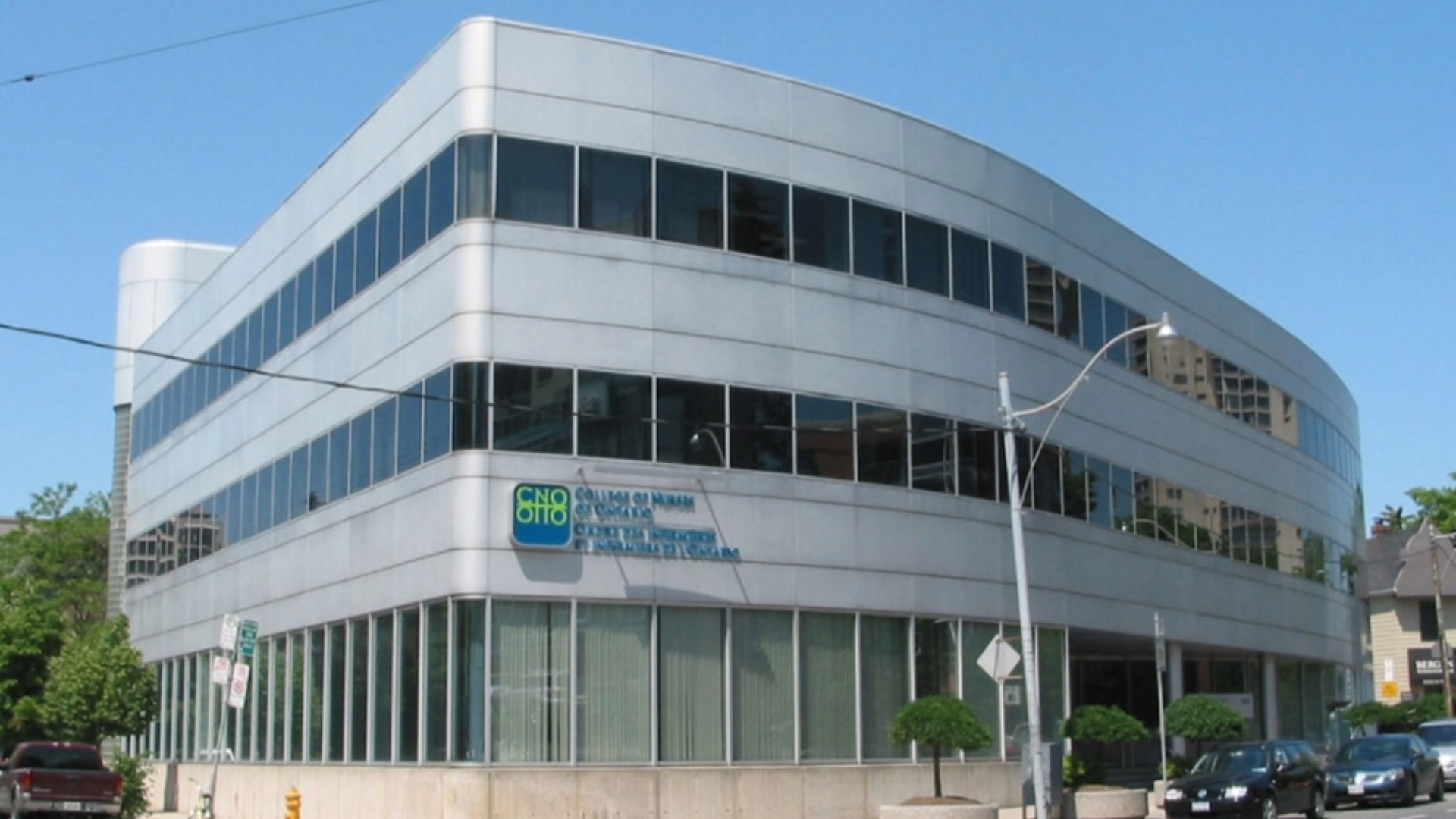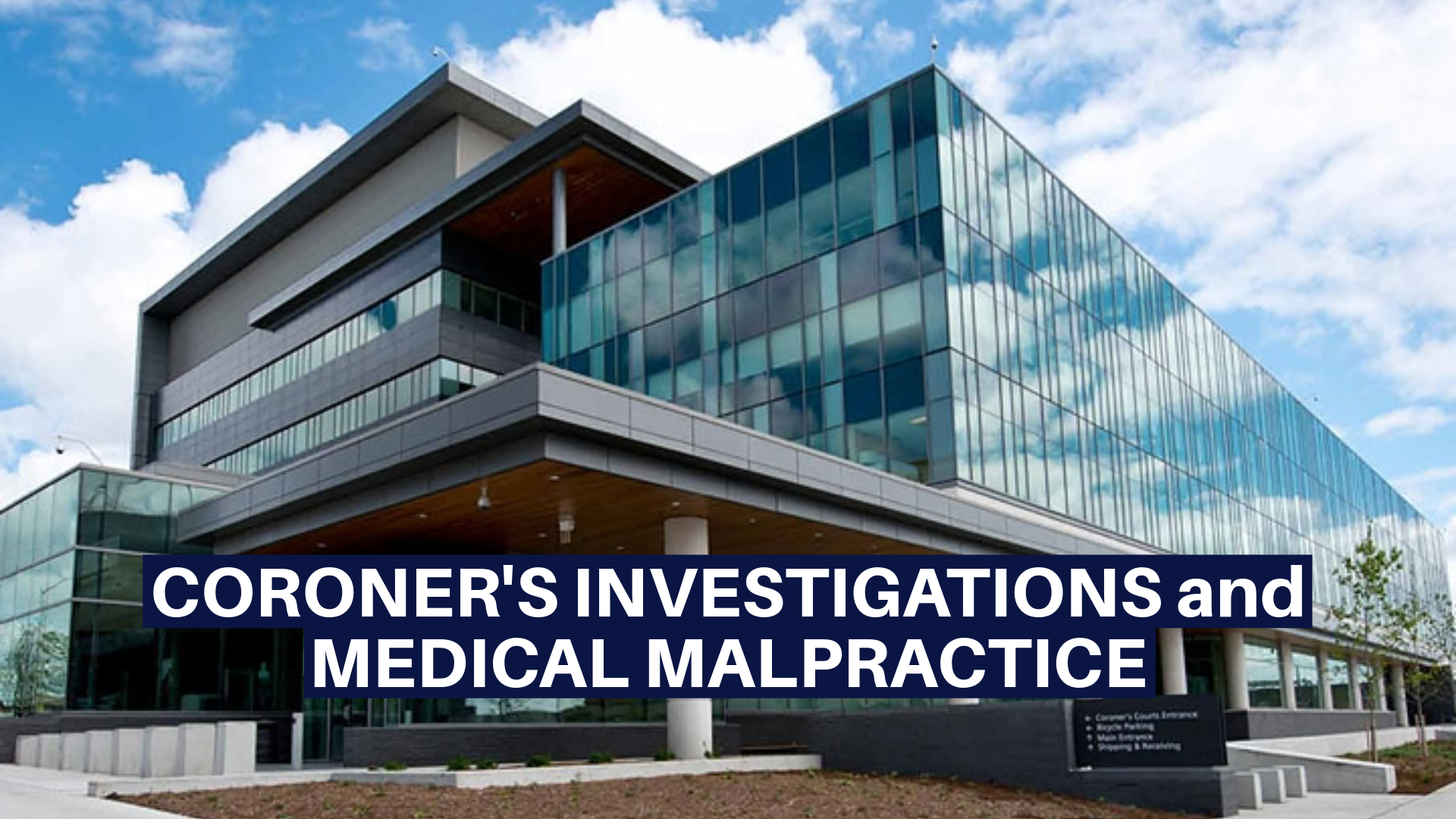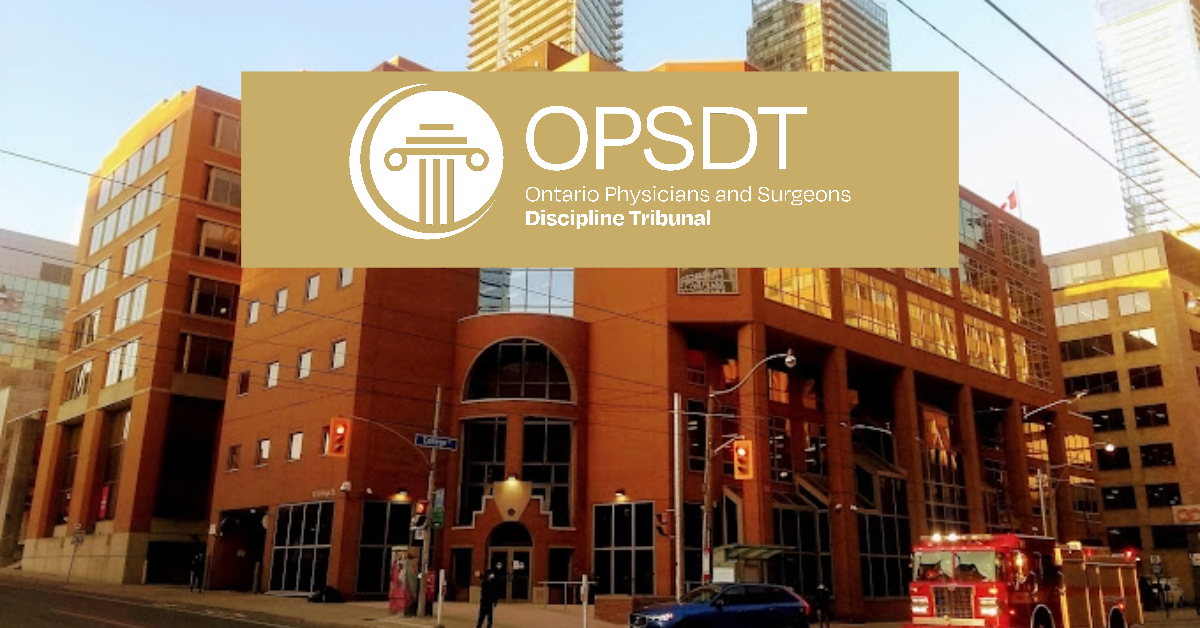
Nurse Alters Morphine Record, Patient Dies: CNO Orders Permanent Resignation
A Profound Breach of Trust in End-of-Life Care In CNO v. Lindsey Coyle, the Discipline Committee of the College of Nurses of Ontario addressed one

According to the most recently available data from Statistics Canada, 117,456 people died in Ontario in 2021. Of all these deaths, approximately half of them (59,977) occurred in hospitals.
The other half (57,446) occurred in non-hospital settings including private homes, health care institutions such as nursing homes and other long-term care facilities, nursing stations and other short-term care facilities and other health care facilities not licensed to operate as hospitals.
What if you suspected medical malpractice or negligence was the cause of your loved one’s death? What are your rights with respect to requesting a Coroner’s investigation into their death?
This article will explain the Ontario Coroner’s Act (the “Act”) so that you understand what your legal rights are with respect to having a Coroner investigate the death of a loved one by medical malpractice or negligence.
WHEN DOES A CORONER INVESTIGATE A DEATH?
A coroner’s investigation is conducted for deaths that appear to be from unnatural causes or natural deaths that occur suddenly or unexpectedly. In some circumstances, a coroner’s investigation is mandatory, including deaths that occur on the job at a construction site or while a person is in police custody.
Sections 10(1)(a)(iii) and (v) of the Act specifically requires every person who has reason to believe that a person has died as result of negligence or malpractice to immediately notify a coroner or a police officer of the fact and circumstances relating to the death.
Section 10(1)(c) of the Act further requires the Coroner to be notified when a woman dies during pregnancy or following pregnancy in circumstances that might reasonably be attributable to the pregnancy.
The scope of people required to notify is as about as broad as you can imagine. It includes every person. Naturally, this would include healthcare providers in a hospital setting. Therefore, if your loved one’s physicians or nurses had reason to believe that there was negligence or malpractice that caused the death of your loved one then they should be reporting the death to the Coroner.
In reality, this may not happen in every case.
Therefore, if you believe that there was negligence or malpractice that caused the death of your loved one, then you should report the death to the Coroner immediately by contacting them yourself at:
Office of the Chief Coroner and Forensic Pathology Service
25 Morton Shulman Avenue
Toronto, Ontario
M3M 0B1
Tel: 416-314-4000
Toll-free: 1-877-991-9959 (Ontario only)
Fax: 416-314-4030

A Coroner may investigate a death believed to be caused by negligence or malpractice in the absence of a body (Section 15(5) of the Act). However, such an investigation will be more limited. The unfortunate reality is that the decision to notify and involve the Coroner in a death believed to be caused by negligence or malpractice comes at the worst possible time for grieving family members.
Some family members may choose not to involve the Coroner because of religious beliefs that require specific funeral rites that would be frustrated by an autopsy. Others are simply too overcome with grief to clearly think about a malpractice lawsuit, however, may regret not requesting a post-mortem examination in the months and years that follow.
If you are concerned about medical malpractice or negligence as the cause of death of your loved one, you should notify the Coroner immediately.
WHAT IS A CORONER’S INVESTIGATION
A coroner’s investigation is a process led by the Chief Coroner and the Ontario Forensic Pathology Service, whereby the coroner or forensic pathologist seeks to understand how and why a person died. Coroner’s investigations are used to support the administration of justice and provide recommendations to help improve public safety and prevent deaths in similar circumstances.
Where a coroner is informed that there is in his or her jurisdiction the body of a person and that there is reason to believe that the person died of negligence or malpractice, the coroner shall issue a warrant to take possession of the body and shall examine the body and make such investigation as, in the opinion of the coroner, is necessary in the public interest to enable the coroner,
CAN A CORONER’S INVESTIGATION BE USED AS EVIDENCE IN A MEDICAL MALPRACTICE TRIAL?
Yes, Coroner’s investigations may be admitted into evidence in a civil lawsuit. The conclusions of the coroner are subject to rebuttal and a trial judge is not bound to accept the conclusions of the Coroner as it relates to the cause of death. See, for example, the Ontario Court of Appeal decision of Shantry v Warbeck.
It is furthermore not the function of the Coroner to make findings of legal responsibility or to express any conclusion of law.
Nevertheless, a Coroner’s investigation may provide important factual evidence as to a patient’s cause of death in circumstances where negligence or malpractice is suspected.
Section 18(7) of the Act permits family members to receive a copy of the Coroner’s record of investigation upon request. This would would include the Coroner’s findings of fact relating to the circumstances of death as well as the relevant findings of the post mortem examination and of any other examinations or analyses of the body carried out.
As medical malpractice lawyer, if a family is wanting to pursue a fatality malpractice claim, it is often helpful to have the additional evidence of a Coroner’s investigation. It would certainly be my advice and recommendation to notify the Coroner if you believed that your loved one’s death was caused by the negligence or malpractice of a physician, hospital or nurse.

A Profound Breach of Trust in End-of-Life Care In CNO v. Lindsey Coyle, the Discipline Committee of the College of Nurses of Ontario addressed one

What College of Physicians and Surgeons of Ontario v. Thirlwell, 2026 ONPSDT 5 Means for Patients and Public Trust In College of Physicians and Surgeons